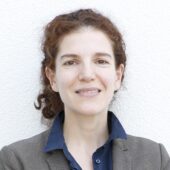
Professor Anoush Margaryan
Former Visiting Research Fellow
Anoush Margaryan is Chaired Professor in the Department of Digitalization at Copenhagen Business School.
With Professor Anoush Margaryan
Artificial Intelligence (AI) technologies are increasingly embedded within our societies and workplaces offering opportunities but also creating systemic skill gaps and demands for new, specialised capabilities. The systemic transformation brought about by AI poses challenges across multiple levels. For individuals, there is a need to enhance skills in order to thrive in today’s AI-mediated workplaces and in the labour market of the future, where AI will play an ever more prominent role. At the organisational level, the uptake of AI has been uneven, due to a shortage of specialised and managerial skills required to effectively identify and implement AI solutions. At a societal level, educational and training institutions and policymakers have struggled to keep pace with this rapid transformation, often producing fragmented, reactive responses that are poorly substantiated by empirical evidence. This talk will explore what we currently know – and what we still need to study -about the capabilities required in AI-mediated societies and workplaces. The talk will propose strategies for developing these vital capabilities at the individual, organisational, and societal levels.
Anoush Margaryan is Full Professor and Endowed Chair in the Department of Digitalization at Copenhagen Business School.
During the 2024-2025 academic year, she is also a Visiting Research Fellow at the Oxford Internet Institute, University of Oxford.
Professor Margaryan’s research explores how people learn and develop skills in the workplace and how digital technologies and learning practices are mutually shaped and reshaped within emergent forms of work, such as online labour platforms and AI-mediated work settings. Her work is grounded in learning sciences, psychology, sociology, and organisational studies, with a focus on the application of theories of human agency, self-direction and self-regulation, and the life course in learning and development in the workplace.
Anoush has over 130 scientific publications, including 2 books, co-authored with over 55 collaborators internationally. She has led over 20 collaborative research projects spanning interdisciplinary, intersectoral, and international partnerships, funded by the UK Research and Innovation (UKRI), Shell, BP, Energy Institute, the European Centre for the Development of Vocational Training (Cedefop), Volkswagen Foundation, Carlsberg Foundation, and the World Bank.
Professor Margaryan has earned several international awards for research excellence including Alexander von Humboldt Senior Fellowship (2016), Excellence in Research-to-Practice Award from the American Society for Training and Development (2005) and Shell Research Fellowship (2008), among others.
She holds a PhD in Educational Science and Technology from University of Twente in the Netherlands (2006), an MSc in Educational and Training Systems Design (1998, University of Twente), and an MA in Romance-Germanic Philology (1997, Yerevan State University, Armenia).